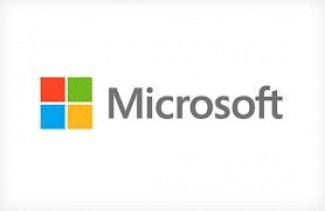It’s been nearly two years since Microsoft Corporation (NASDAQ:MSFT) paid a whopping $8.5 billion for the VoIP service Skype, its largest acquisition ever. Naturally, a deal of that magnitude elicited its share of questions: How do you monetize Skype to warrant that kind of price tag? How will Skype integrate with Microsoft’s other enterprise-related services? And, most of all, when will investors begin to see a return on Microsoft Corporation (NASDAQ:MSFT)’s investment? Thankfully for shareholders, Microsoft is beginning to answer some of those questions.
A few answers
It’s too early for Microsoft Corporation (NASDAQ:MSFT) to answer all the concerns surrounding its Skype purchase, but a recent report detailing the growth in international phone traffic should help appease some of the naysayers. According to telecom research firm TeleGeography, international calls increased 5% in 2012, to 490 billion minutes. But overseas calls don’t take into account VoIP or messaging apps, like Microsoft’s Skype; and this is where the numbers get interesting.

Microsoft didn’t provide revenue details of its Entertainment and Devices unit last quarter. However, Microsoft’s Xbox unit sales did drop 2 8% compared to a year-ago, equating to a $1.1 billion decrease in revenues for the unit. But, even with the decline in Xbox sales, Microsoft’s entertainment and devices revenues of $4.15 billion were comparatively flat compared to 2011.
Where did Microsoft’s entertainment and devices revenue come from, if not Xbox sales? Even factoring in a number of one-time charges last quarter, there’s more going on here than simple accounting — one look at the staggering growth in Skype usage speaks to that. Microsoft CEO Steve Ballmer is notoriously mum when it comes to providing specific sales results, but it’s not a stretch to infer a 44% jump in Skype usage – especially usage that generates revenues – played a part in making up for its lack of Xbox sales.
Not alone
Microsoft is hardly alone in the VoIP and video conferencing space, and the primary players are significant. But with the kind of growth Microsoft is seeing in its Skype unit, you can bet the gloves are coming off at Google Inc (NASDAQ:GOOG), and even its current VoIP partner, Facebook Inc (NASDAQ:FB).
With an expected $15.4 billion in revenue generated in the VoIP market this year, Google’s Voice service is going to get some serious attention from CEO Larry Page. Google has already announced its VoIP service will remain free in 2013 for the U.S. and Canada markets, but will charge for overseas calls. Revenues are always nice, but for Google, Voice is (yet) another means of seamlessly running apps, and retaining customers, on its plethora of Android OS devices. And if Google’s good at anything, it’s keeping users around long enough to generate advertising revenues.
Facebook is the most intriguing competitor for Skype, in large part because of its partnership with Microsoft. Microsoft provides Facebook users’ out-of-network searches using Bing, which doesn’t pose a conflict, at least until the full capabilities of Facebook’s Graph Search come to fruition. But Facebook’s Jan. 16 announcement of its new iOS Messenger domestic calling feature raises all sorts of questions. With over a billion users, Facebook can throw some serious weight around. Skype may be the leader in VoIP services today, but Facebook and all those users can’t be overlooked.
The market for Skype is new enough that Microsoft can find more ways to maximize its revenue potential, particularly as the service is utilized by more commercial customers. And news that Microsoft is going to step-up its scheduled transition for its Messenger customers to shift to Skype should give the already growing service a shot in the arm.
In the meantime, Microsoft’s new Windows 8 will provide it the opportunity to seamlessly meld Skype with search, smartphones, tablets, Office 365, and a host of other services, into a nice, tidy package. With incredible growth and massive potential, Microsoft shareholders will find the $8.5 billion price tag for Skype might not have been as bad an idea as they had originally thought, after all.
The article Still Think Microsoft Overpaid for Skype? originally appeared on Fool.com and is written by Tim Brugger.
Fool contributor Tim Brugger has no position in any stocks mentioned. The Motley Fool recommends Facebook and Google. The Motley Fool owns shares of Facebook, Google, and Microsoft.
Copyright © 1995 – 2013 The Motley Fool, LLC. All rights reserved. The Motley Fool has a disclosure policy.





